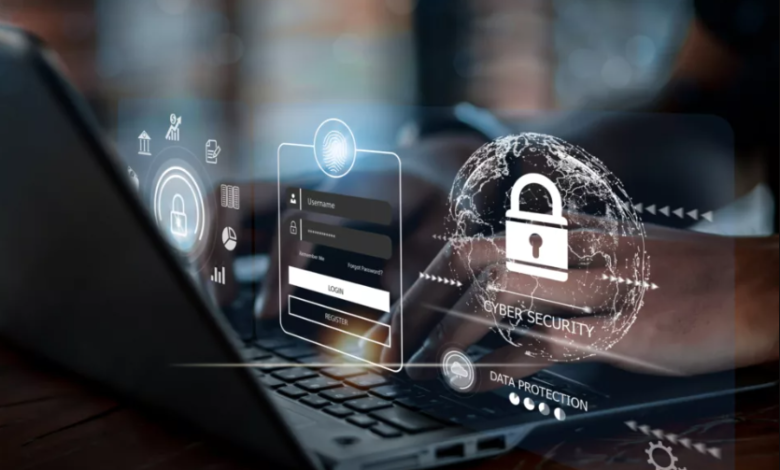7 Tips Every Person Should Follow to Stay Safe Online

Staying online and using your social media platforms is all fun and games until you are exposed to those online threats. Hacking, scamming, and identity theft are some risks we get exposed to when using online platforms. Cyberbullying is also another example of what people experience while being online.
This not only affects your online world but can also affect your real-life communications, your mental health, and so much more. As we all know, living in a rapidly evolving world, everyone is using online platforms and cannot stop using them because of the risk of being unsafe. There are many strategies and tips that every individual can follow to stay safe online.
Some of them are listed below:
1. Understand the Need for a Secure Internet Connection
Using an unsecure network means you are vulnerable on online platforms. You could get hacked or scammed, or your data could be stolen. When connected to public Wi-Fi, you don’t have control over the security, and that’s when the cyberattacks happen.
You should avoid using these public connections, especially for sensitive work like online transactions, etc. If there’s a need to use an unsecured connection, using a VPN is recommended. VPN is a Virtual Private Network that can protect your data from these cyber threats.
But try to use personal and secure Wi-Fi networks for sensitive things when working remotely, banking, or billing. This keeps you safer online and avoids any problems that may occur, such as hacking.
When considering a secure and private internet connection for your home, you may find that many internet providers use end-to-end encryption and have added security with their routers.
For instance, Xfinity has an encrypted and secure Gateway device, so your internet connection is safe from malicious online activities. Plus, the 24/7 support from Xfinity en español or English makes it easy to get the right internet plan for browsing securely.
See also: How Active Release Techniques Work to Relieve Pain and Improve Mobility
2. Secure with Strong Passwords
The most effective and safest way to browse online is to choose strong passwords. Usage of numbers, symbols, upper and lower cases can decrease the risk of hacking of your social media platforms.
Make sure you use a separate password for each platform and avoid using your name, birthdate, and private information as your passwords, since they can be easily hacked or determined by data.
For stronger passwords, you can also use the ones that your phone recommends. Additionally, don’t use any platform for saving your passwords in a place that could become the victim of cyberattacks, as all of your information could be accessed.
3. Keep Software and Operating Systems Updated
Keeping your software updated can save you from the potential risks of cyberattacks. These updates are essential as they can fix the security breaches and bugs that your phone or laptop is exposed to.
When your software is old and outdated, it is easier for cybercriminals to get access to your online platforms. To make their work harder, software and other operating systems should be updated accordingly.
4. Be Careful of Suspicious Links
The most common and easiest trap for cyberattacks is clicking on links. These links can be accessed through emails, messages, or pop-up ads. Everyone should avoid clicking these links and access only those links that look reliable or have an authentic source.
The common tactic scammers use is that they text or email you asking for your bank details. Never share your personal bank details online. Not even the banking support asks for such. So, do not send these details or open the links sent by scammers. It will only help them to easily hack your accounts and create a security breach.
5. Backup Data Regularly
Backing up your data can help against any data loss that is caused by malware attacks or hardware problems.
These malware attacks will not allow you access to your device, files and information. Backing up data is a safe option for when you need to access your data without being a victim of a malware attack.
6. Be Careful What You Post and Where
The rise of social media has led people to post religiously on every social media platform they are on. Too much information about yourself can make it easy for hackers to do their job. They can get access to the place you live, friends you hang out with, places you go to, and so much more.
Moreover, keeping the risk of cybercriminals aside, posting too much about yourself can also risk your safety since many robbers or stalkers around you can secretly get access to you.
What should you do to avoid such issues?
Post limited information online. You should avoid using your address and contact information, including phone number and email, online besides on authentic protected sites such as when you’re ordering from Zara. Avoid posting real-time vacation pictures, and naming your workplace can help protect you.
7. Review Privacy Settings and Understand the Policies
Before using social media, the initial step you should take is to review the privacy settings of the platforms you are using. These privacy settings and policies get updated regularly. To avoid any security problems, it is important to keep an eye on them.
Platforms like Facebook, LinkedIn, etc., allow users to choose who they want to show their information to. Update this setting, if you haven’t yet, by choosing your friends and family to see your profile and other information. Always avoid adding a public to get access to your profile.
If we talk about privacy policies, it is important to read and understand them thoroughly, since most of us accept those policies without reading them. This can be a risk as many apps and marketing companies ask for access to your private information to better understand you a better way, which may cause a security risk.
With the increasing use of online platforms, there is always a risk of cybersecurity issues. The given strategies can help you stay safe while browsing online. Everyone should implement these tips to avoid any security breach or potential cyberattacks. This will not only save you from being a cyber-victim but also give you peace of mind.




